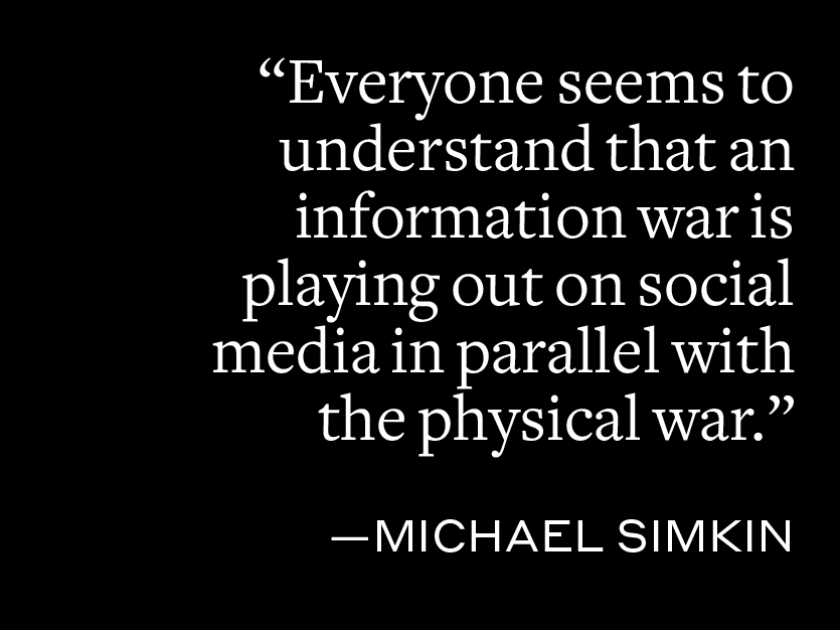
This piece is one of an ongoing series that we are sharing from Israeli authors and authors in Israel.
It is critical to understand history not just through the books that will be written later, but also through the first-hand testimonies and real-time accounting of events as they occur. At Jewish Book Council, we understand the value of these written testimonials and of sharing these individual experiences. It’s more important now than ever to give space to these voices and narratives.
In collaboration with the Jewish Book Council, JBI is recording writers’ first-hand accounts, as shared with and published by JBC, to increase the accessibility of these accounts for individuals who are blind, have low vision or are print disabled.
A big percentage of my real-life friends and contacts on social media are Israeli. This means that since October 7, my social media feeds have all been completely filled with posts asking for the kidnapped men, women, and children to be returned safely and with requests for various types of help to be given to victims, evacuees, and soldiers. There are also posts that share recordings of Hamas’ atrocities, and other posts that counter those that seek to downplay Hamas’ atrocities.
Everyone seems to understand that an information war is playing out on social media in parallel with the physical war. When I go into my social media feeds, I almost don’t see anything pro-Palestinian or anti-Israel whatsoever. Obviously, the social media feeds of people who identify with the Palestinian cause look very different than mine.
After the initial massacre, I saw a couple of posts from a Palestinian American LinkedIn friend. I found what he was sharing hard to deal with, and I wrote a private message to him explaining how I felt. He didn’t answer me. And that’s it, apart from a British friend on Facebook who changed his cover image to an Israeli flag with a swastika instead of a Star of David. I also wrote him explaining how offensive that image might be to the majority of Israelis who want peace.
I completely understand Israeli friends sharing requests of assistance for victims, evacuees, and soldiers, and the posts noting the names of the kidnapped and asking them to be returned safely, but when we are posting information that decries Hamas and their misinformation, it still isn’t clear to me exactly who we are talking to. Is it those who consider themselves “the undecideds” who may see our posts? Is winning the information war about who posts the most and who gets the most likes? And then – given the way social media algorithms work – we may end up only preaching to the choir. I wonder how many people I know are posting in groups where there are other people whose attitude is pro-Palestinian or undecided. Personally, getting into any arguments on social media seems futile to me.
I think a key factor influencing how our opinions and social media feeds look is where we are physically located relative to the conflict. And when it comes to the majority of people around the world who may not be closely linked to either Israel or Palestine, I wonder how powerful the echo chamber effect is. The correlation between our opinions and what appears on our social media feeds may well be closer than we want to believe. The implications are huge, and so the information war continues.
I wish to add that while I live close to the conflict, I am lucky enough not to have been hurt in the attacks, nor do I know anyone personally who has been. I acknowledge that while I am wondering about the war on social media, many are fighting for their lives.
I have never before felt so affected by an event that is external to me. I very much feel the pain and grief around me, though, in all honesty, as an immigrant, I do not feel the pain quite as fiercely as many native Israelis, who, like me, are only indirectly affected. Perhaps this is because when they say the words “I have no other land” it has a true significance.
May hope somehow emerge from the darkness, and while it may sound naive, may we all come to live in peace without terror or oppression.
The views and opinions expressed above are those of the author, based on their observations and experiences.
Support the work of Jewish Book Council and become a member today.
Michael Simkin was brought up in England, studied languages at Bristol Univeristy, then became a wandering Jew, travelling the world. These days, by night, he is a writer — he has written a couple of books of poetry and a novel — that got on some Amazon best seller lists. By day, he is a freelance marketing consultant, living in a moshav in Emek Hefer. He has one son and a labrador.